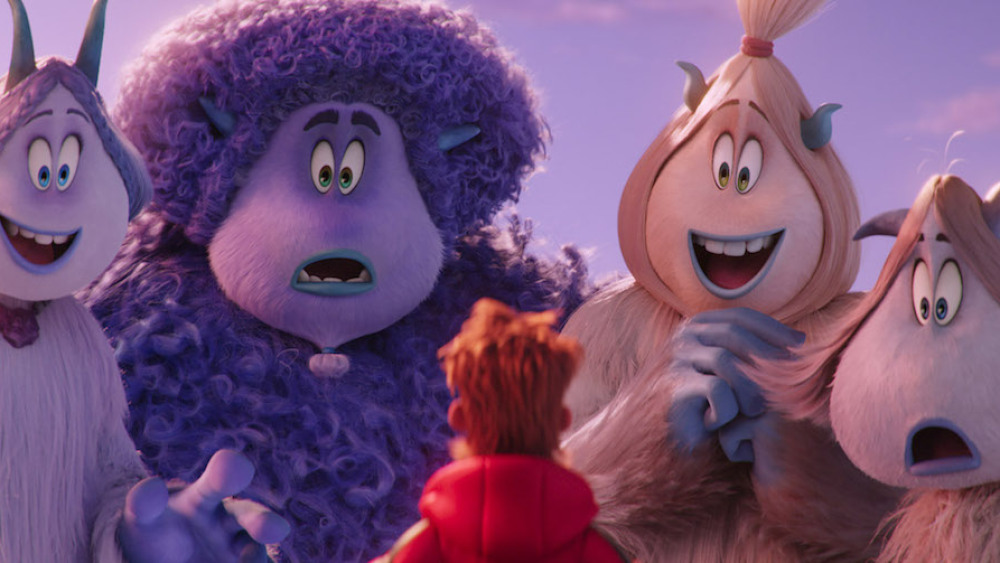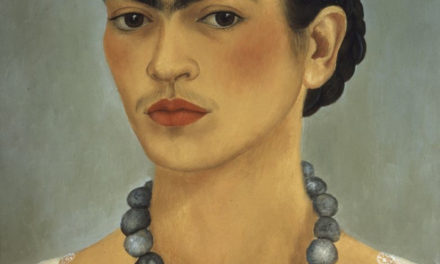With its big-name cast and strong premise, “Smallfoot” is a promising film. Though fundamentally a children’s movie — a musical comedy, at that — it takes on pressing issues of truth and law, emphasizing the demands of upholding both. Unfortunately, “Smallfoot” falls shorts on its ambitious intentions, aiming to deliver more than it allows itself to.
The movie opens with a Yeti folk tale about the creation of the world and the natural forces within it, describing the foundation of Yeti society. The format is nothing new; narrator and protagonist Migo (Channing Tatum) speaks over a stylized depiction of the mythos. Migo describes his home as a village tucked in the peaks of a mountain, secluded from the mysterious and unknown outside world. The village’s laws are absolute, administered by a priest-like “Stonekeeper,” and control the village’s daily routine. Migo has little reason to question them. His only aspiration is to follow his family’s tradition of gong-ringing, a process they believe makes the sun rise.
The description is followed by a musical number, where the movie’s critical fault begins to show. Though the song is catchy and introduces the secondary characters, it serves little purpose in the film. The song’s only apparent function is as an opening number that allows the film to boast a “musical” genre. It fails in comparison to other films’ musical elements. “Smallfoot”’s rendition neither provides character insight as well as “Moana”’s “How Far I’ll Go,” or foreshadows as “Coco”’s “Remember Me” does. Still, the song is driven by clever turns of phrase and lets Migo tour the audience around his home town, which is thoroughly and thoughtfully detailed.
Though Migo’s personality is stale, his cheerful and earnest nature makes him likeable, carried by Tatum’s spirited performance. Migo’s encounter with a human ultimately drives him away from the village, as he finds himself banished for breaking the status quo. From here, he meets the Smallfoot Evidentiary Society and supporting cast — a group that, though hurriedly introduced, is defined by strong characterization and quirky comedy. His existing relationship with the group is unclear, sacrificed for the sake of moving the plot along. Meechee (Zendaya), Migo’s love interest, tries to persuade him to abandon the life he knows to learn more about humans — or, as the Yetis call them, smallfeet.
The film’s human lead is Percy Patterson (James Corden), a former Hollywood idol who fell from fame. He struggles to maintain the integrity of his naturalist TV show, desperate for more viewership. Caught between his duty to the truth and his desire to make his show successful, Patterson acts as Migo’s foil, readily compromising his morals for viewership. When Patterson encounters Migo while Migo searches for proof of smallfoot existence, Patterson is captured and thrown into the Yeti world.
Migo and Patterson never speak to each other about their grapples with truth. In part, this is due to an inability to communicate. Yetis hear human-speak as high-pitched garble, while humans perceive Yeti-speak as a beastly roar. This mechanism doubles as both comedy and a narrative tool to illustrate the divide between the two species. A similar line is drawn through the visual juxtaposition of the Yeti’s bright, white world, and the humans’ dark yet vibrant one. These visual and auditory divisions are some of the strongest elements of the movie, reminding us that there are multiple sides to every issue.
Though the movie advocates for the truth above all else, its message is often muddled, seemingly in an attempt to capture its younger audience. The movie implores its characters, and the viewer, to question the information the film presents, especially from governmental and religious figures. The plot pits Migo against laws literally written in stone, and ultimately pushes a narrative of change over comfort. However, they lose track of this theme several times, most clearly in Meechee’s song, where she lauds curiosity, rather than truth, as being the primary motivation behind her actions. It feels like “Smallfoot” refuses to fully commit to its message — one that is especially relevant in a time of fake news and an especially contentious relationship between the U.S. president and media.
“Smallfoot” has a few other songs, the final being a cheerful pop tune, but only Yeti leader Stonekeeper’s song holds any significant weight. Yeti society’s adherence to its own laws, the backbone of the film, is inconsistent, with Migo and his friends’ own views being uncertain until the very end. Overall, the movie suffers from its own hesitation to expand past the children’s movie format, even when its concept calls for it. Its songs are bland, though the visual direction is consistent and memorable. The heart of the movie — its characters and ideas — is relevant, but “Smallfoot”’s potential is ultimately lost to its own insistence following on the genre’s convention.
Grade: B-






